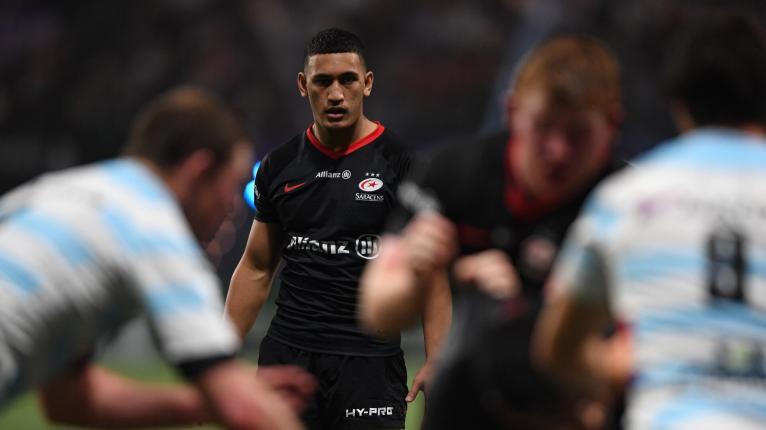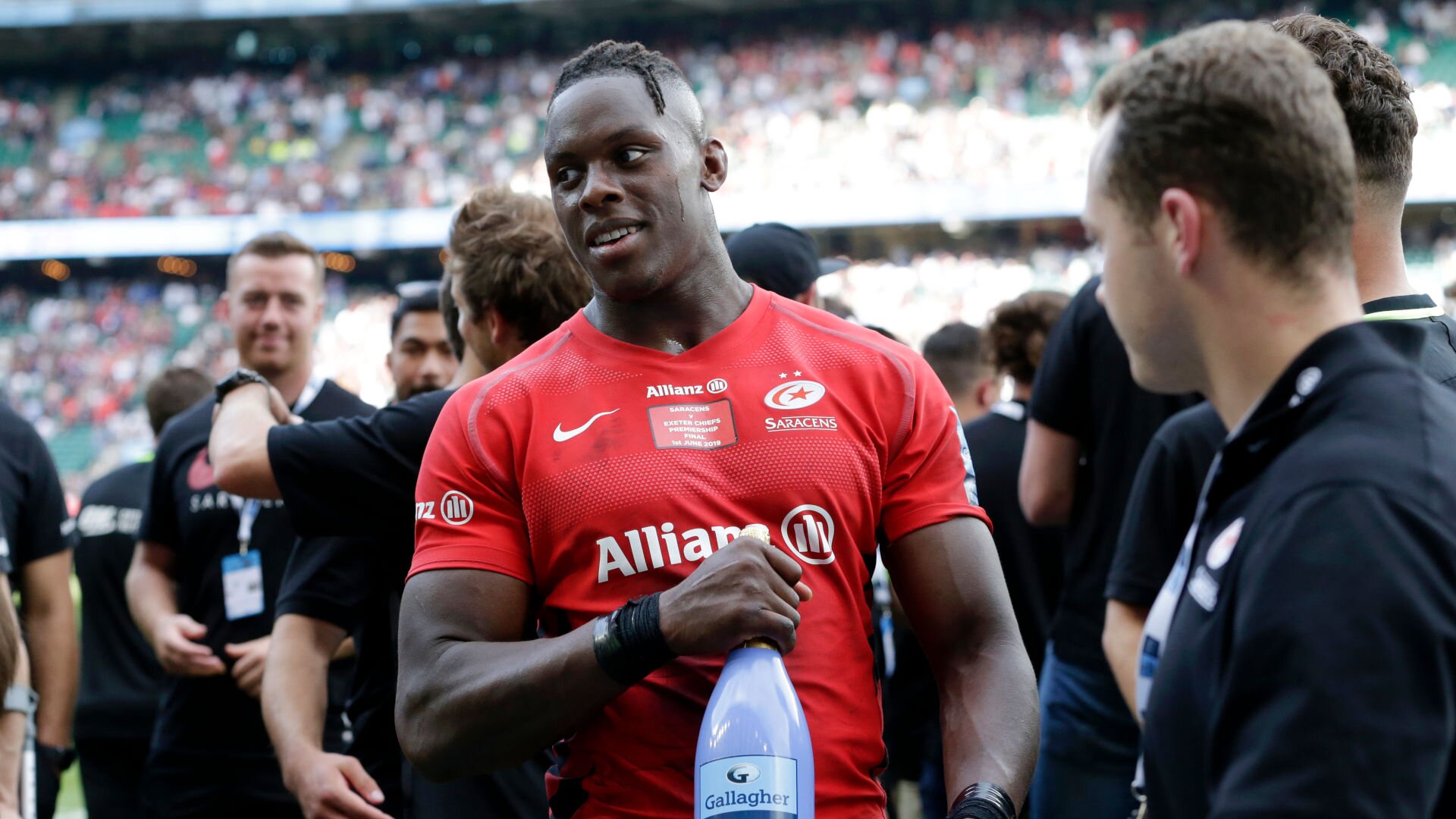A toxic mix of decreasing income, increasing outgoings and living off capital

How to spend £5.3 million? That’s the question many Premiership clubs could be asking themselves, and if so, many Directors of Rugby may be pondering which of Nigel Wray’s players they could buy using Nigel Wray’s money?
On a serious note, Saracens paying a fine that is used for compensation, distributed among Premier Rugby Shareholders, may draw a line under the whole saga. particularly if these payments circumvent the need for any more legal drama.
What would clubs do with their 9% (441k)?
Firstly they would reduce that figure to £308k because CVC owns 30% of Premier Rugby Limited (PRL). Even so, £308k is hardly a kick in the teeth for cash-hungry clubs.
Maybe, Wray’s £308k can mitigate the drop in TV money received by Premiership clubs this month?
Finance departments at clubs across the league will be opening envelopes embossed with the BT Sport wax seal, only to find the contents lighter than that of previous envelopes, lighter by 30% in fact.
The Pro14 announced that CVC would be their new investment partner last week, though it’s not rugby that CVC is investing in, it’s TV revenues and central advertising. The deal is simple, like a financial derivative or a futures contract but with added benefits of an equity stake (or risk).
There is nothing inherently wrong with this, but it is important to understand the nature of rugby’s situation. Private Equity firms do many things, they are hard to define. Probably the best definition of Private Equity is an organisation that employs clever people and backs them with money.
In Premier Rugby Ltd’s case CVC’s objectives are to enjoy 30% of the revenues from a couple more rounds of TV deals, then sell the shares for substantially more then they bought them for.

They hope to package up all manner of rugby from the Premiership to Pro14 and eventually the 6 Nations, then sell the TV rights in order to further boost their returns but don’t be mistaken, the deal is about securing TV money and growing revenue, growing rugby would just be happy coincidence.
The idea of CVC investing in rugby is a little disingenuous, to invest in “rugby” you would of need to buy 30% in all the clubs rather than just the PRL. CVC will do well out of this deal, So the next question you might ask is why are the other shareholders, the clubs, not in great shape?
Let’s start with the deal its self. The best way to explain this is with an analogy.
Imagine a block of flats with 13 owners (12 premiership clubs plus Newcastle) who all have an equal share. They rent out the flats, however the rent does not cover the cost of the upkeep. So they strike a deal with a third party who buys 30% of the building, giving the original 13 a cash lump sum.
A new era.
Premiership Rugby today confirms a landmark new partnership with leading private equity and investment advisory firm CVC Capital Partners
Read more ?https://t.co/g91Qqcq41X pic.twitter.com/mGvxdDz04u
— Premiership Rugby (@premrugby) December 19, 2018
The flats now have 14 owners. The new owner owns 30% (CVC), and the remaining 13 own 5.3% (the clubs).
The income from the flats are split in accordance to the shareholdings, however the quirk of this deal is that all the costs are born only by the original shareholders (the clubs).
The clubs would pay for the upkeep, the maintenance, rates, utilities, staffing costs, gardening etc exclusively from their 70% share of the rent. The risk for CVC is rents falling or the block of flats burning down.
Sadly the fundamental problem remains that expenses are higher than income, when the new partners’ capital has all been spent they will be in a worse situation then when they started. The clubs issue was never not enough capital.
CVC cash must go towards sustainability, not players' wages – Andy Goode | RugbyPass – ?@AndyGoode10?. Agree with every single word you’ve written here. Excellent article. https://t.co/sLbXeye0JV
— simon cohen (@simonjcohen) November 30, 2018
If clubs are wise they will spend their windfall on income generating assets, stands, hotels, conferencing facilities, you get the idea.
If they spend it on player wages, directors loan repayments and paying down debt the future may be very bleak indeed. Professional Rugby clubs struggle to make profits and with a 30% reduction in central revenues it might leave club owners making some very hard decisions in the future.
The problem with the CVC deal is it exchanges income for capital and as any spendthrift with an inheritance will tell you, you can’t live off capital for long.
Worse still, no matter how you look at the situation you would struggle to find a scenario where clubs would be able to buy back the shares in the league.
A total of 72 Irish-eligible players – 40 forwards and 32 backs – started for the provinces across the opening two Champions Cup rounds.@heagneyl picks the form XV ???https://t.co/lTTGxxTGoo
— RugbyPass (@RugbyPass) November 24, 2019
The most likely buyer of CVCs shares, should they decide to exit this agreement would probably be another financial institution.
It’s not even clear that if CVC were successful in increasing TV money that this would be a good thing.
It’s reasonable to say that clubs hooked on the first high of CVC cash but still not profitable might look at their balance sheets and see the huge value of their PRL shares. They then might be tempted by a further sale of shares, compounding their cash flow issues in the future even further. This might sound familiar to fans of Leeds Rugby who sold their shares to Exeter only to find, guess what? – you can’t live off capital for long.
This would be a game-changer all thanks to CVC https://t.co/FmRlPAfqoq
— RugbyPass (@RugbyPass) July 22, 2019
Not that CVC would necessarily care, clubs can go bankrupt at any time however it’s unlikely the league itself could, it has minimal overheads compared to a clubs and should one club leave the league it would simply be replaced by another, clubs are replaceable, again ask Leeds.
It’s a toxic mix of decreasing income, increasing outgoings and living off capital.
The CVC deal is probably a more an indictment of the perilous situations club owners find themselves in. It also highlights the importance of controlling expenditure and especially player wages.
My fear is that the CVC money is covering for poorly run clubs. When the CVC party finally stops there will be plenty of sore heads and regretful memories of questionable decisions. Enjoy it while it lasts!




































































